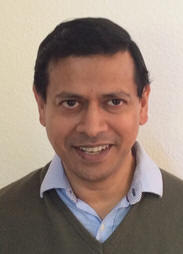Catholic Medical Quarterly Volume 70(1) February 2020
Editorial
Conversion Therapy and Reparative Therapy
Dr Pravin Thevathasan
 Writing
in the Psychiatric Bulletin[1] Professor Annie Bartlett criticizes the
work of Dr Joseph Nicolosi, a practitioner of reparative therapy. The
article is entitled "Conversion therapy and the LGBT community". But is
reparative therapy a form of conversion therapy? Are people with same sex
attraction forced to endure a therapy that attempts to persuade them to
become heterosexual? If so, it would seem ethically objectionable.
Writing
in the Psychiatric Bulletin[1] Professor Annie Bartlett criticizes the
work of Dr Joseph Nicolosi, a practitioner of reparative therapy. The
article is entitled "Conversion therapy and the LGBT community". But is
reparative therapy a form of conversion therapy? Are people with same sex
attraction forced to endure a therapy that attempts to persuade them to
become heterosexual? If so, it would seem ethically objectionable.
It is clear that reparative therapy is widely condemned by the established medical profession and equally clear that defences of it are not likely to be accepted in most medical journals. Given that there is no reply to Prof Bartlett in the Psychiatric Bulletin, and mindful of the basic right to free speech we publish in this journal an article by Dr Nicolosi’s widow setting out some of his thoughts and experience of transgender issues, same sex attraction and reparative therapy[2].
Many years ago, I discussed this with a group of young people who had unwanted same sex attraction. They said that they had benefited greatly from the works of Dr Nicolosi. None of them had changed their orientation. But that did not appear to matter to them as being gay did not define who they were. They wanted to live their lives according to the consistent teachings of the Catholic Church and Dr Nicolosi's works had helped them. They spoke about various forms of childhood trauma. One spoke about an absent father figure while growing up, leading him to idolize a male role model and thus develop same sex attraction. None of them found reparative therapy to be punitive.
Are homosexuals born that way? Nicolosi was not convinced. According to a major study recently published in Science , it would appear that the search for the "gay gene" is now over. The study declares its non-existence while also stating that much more important factors include who your friends are when growing up [3,4].
If there are no inherent reasons to be homosexual, then it would be reasonable to develop chaste friendships with people of the same sex. The teaching of the Catholic Church that we are all called to chastity irrespective of sexual orientation seems eminently reasonable. There is no conflict between science and natural law.
So, what does the Catholic Church teach? The Church tells us that same sex attracted individuals must be accepted with respect, compassion and sensitivity. However, while homosexual persons can never be described as disordered, homosexual actions can be. They predispose one toward what is not good for the human person. The only conversion the Church calls all of us to achieve is growth in charity.
References
- Bartlett A (2018) , Conversion therapy and the LGBT community: the role of the College now? Psychiatric Bulletin Vol 42, 264. www.cambridge.org/core/journals/bjpsych-bulletin/article/conversion-therapy-and-the-lgbt-community-the-role-of-the-college-now/78537A226B9B39EB709545730D57BA73
- Linda Ames Nicolosi. (2019) Issues around transgender and reparative therapy. The work and life of Dr. Joseph Nicolosi Sr. In this edition: Catholic Medical Quarterly 70 (1):12.
- Gannal A et al. (2019) Large-scale GWAS reveals insights into the genetic architecture of same-sex sexual behaviour. Science Vol. 365, Issue 6456, eaat7693. DOI: 10.1126/science.aat7693
- Sullins P.Sociologist: New study ‘explodes’ narrative that people are born ‘gay’. Lifesite news. Tue Sep 3, 2019 https://www.lifesitenews.com/opinion/sociologist-new-study-explodes-narrative-that-people-are-born-gay
